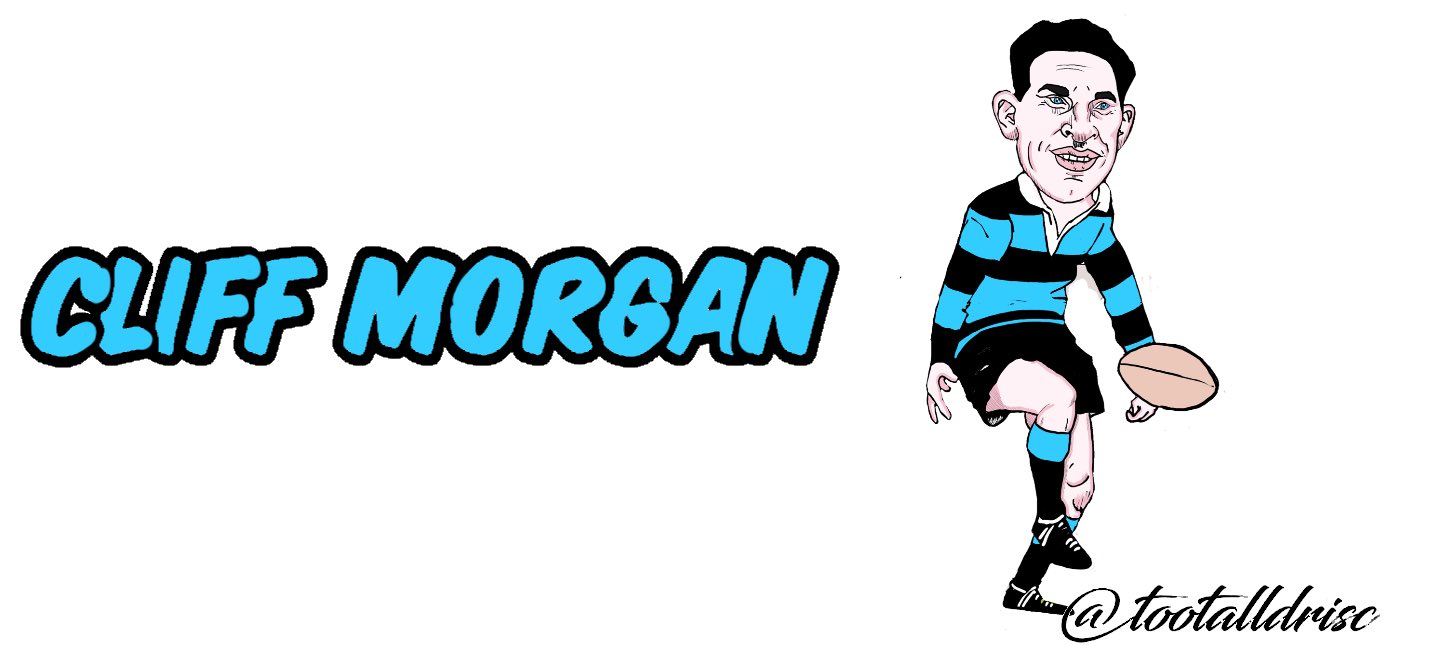Clifford Isaac Morgan was 5ft 7in, but a giant amongst men. There are many great rugby players but very few are great men. A rugby player for Cardiff, Wales and the Lions; a broadcaster, interviewer and commentator; raconteur and one of the nicest and most humble people you would ever wish to meet.
Morgan was born in Trebanog in the Rhondda in 1930. When he joined Cardiff RFC he served his apprenticeship in the Rags before going on to play in 202 games over 8 seasons. He was a fly-half blessed with natural balance and strength, together with an astute line-kicking ability and searing acceleration.
He won the first of his 29 cap for Wales in 1951. He was part of the Grand Slam winning Welsh side of 1952. The following year he inspired both Cardiff and Wales to historic victories over the touring All Blacks. In 1956, he was made captain of Wales. He won 4 caps on the Lions tour of South Africa in 1955 in which the Test series was drawn 2-2, Morgan distinguishing himself for his marshalling of a talented Lions backline. The South African newspapers dubbed him “Morgan the Magnificent”.
Morgan joined BBC Wales in 1958 after retiring from playing, eventually moving effortlessly to a seat behind the microphone, famously commentating on the Barbarians versus the All Blacks game in 1973 and “that try”. He also became known to a wider TV audience as a team captain in A Question of Sport in the 1970s, trading verbal quips with boxer Henry Cooper. Loved by his contemporaries, venerated by his successors, he was a man of the word as well as the deed. Like so many Welshmen growing up with chapel sermons in their ears, he revelled in the sonorous phrase.
In 1975, he was appointed as the BBC’s head of outside broadcasts – a post he held for 12 years. He then later presented Sport on Four for BBC Radio 4.
He was one of the first to be inducted into the International Rugby Hall of Fame in 1997, and joined the IRB Hall of Fame in 2009. He was appointed OBE in 1977 and CVO in 1986 for his services to broadcasting.
But it will be Morgan the Man that many will remember. As Barry John once said, “To be in the presence of Cliff was to be privileged; he afford so much time to others. He just had this warmth, a special ability to put people at ease, make them jovial. When Cliff entered a room, there was a tingle, even if you were in a bad mood you suddenly started smiling. The great man had arrived”.
‘A History of Blue and Black – The Greats’ is a new series brought to you by Cardiff Blues, in association with CF10 Rugby Trust and local artist, Tim Driscoll. We look back at the life and careers of Cardiff Arms Park’s most iconic figures – from the rugby team’s inception in 1876 through to the 21 century and the regional era.

